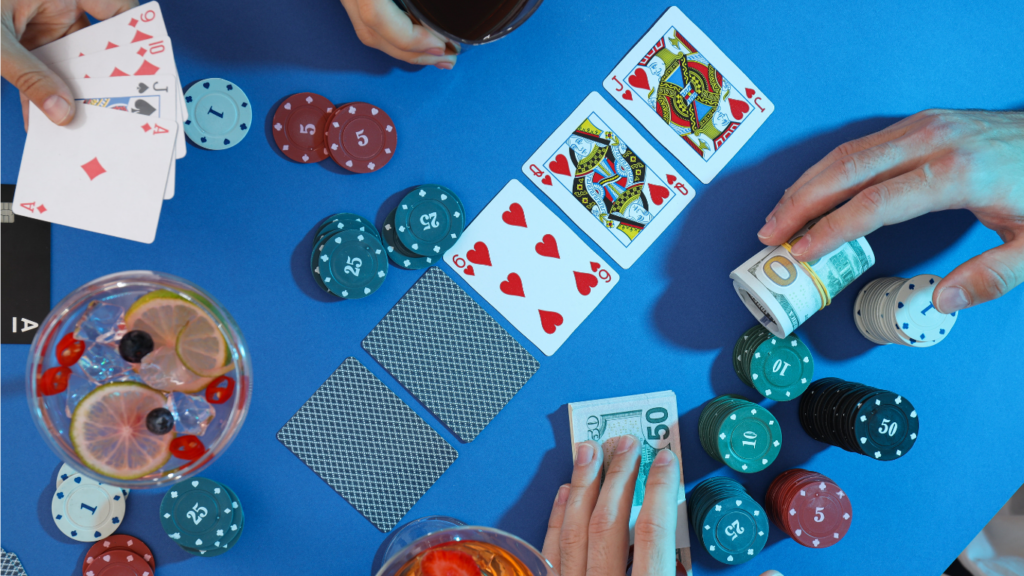Stepping into the world of tournament play is an adrenaline rush like no other. Whether you’re a seasoned competitor or just starting out, the thrill of strategizing, adapting, and aiming for victory keeps the game alive. But let’s face it—success in tournaments isn’t just about talent; it’s about preparation, mindset, and knowing how to make the right moves at the right time.
Overview Of The Art Of Tournament Play
Mastering tournament play involves a combination of skill, preparation, and adaptability. Each competition brings unique challenges, requiring players to refine their approaches based on the tournament format, opponent styles, and evolving strategies. Success stems from understanding these dynamics and reacting effectively under pressure.
Preparation serves as the foundation of competitive excellence. Reviewing rules, analyzing past matches, and practicing consistently help sharpen skills and increase precision. High-performing players rely on detailed preparation to minimize errors and maximize efficiency in matches.
Mindset plays a critical role in navigating high-stakes games. Maintaining focus, managing nerves, and making quick, confident decisions create a mental edge over opponents. Consistent mental discipline ensures steady performance even in the most intense scenarios.
Strategy shapes outcomes by setting the tempo and direction of gameplay. Observing an opponent’s strengths and weaknesses during matches and adapting techniques to counteract them provides a competitive advantage. Evaluating tactics post-match further enhances strategic growth for future tournaments.
Recent Updates In Tournament Play
Staying updated on changes in tournament play is essential for maintaining a competitive edge. Recent developments have influenced rules, formats, and strategies, shaping how players approach competitions.
Key Changes In Rules And Formats
Revised eligibility rules introduced stricter guidelines for player participation in many tournaments. For example, age brackets or regional restrictions have narrowed competition pools. Adjusting to these frameworks requires awareness of specific tournament guidelines.
Formats now often include hybrid structures mixing round-robin and elimination phases, extending playtime but fostering fairer rankings. These shifts demand endurance and adaptability to maintain performance across varying match conditions.
Penalty regulations for rule violations have strengthened. Infractions, such as equipment tampering or unsportsmanlike behavior, now face harsher consequences, increasing the necessity for players to demonstrate professionalism at all times.
Emerging Trends And Innovations
Tournament organizers are increasingly integrating technology. Automation tools for live scoring and AI-powered decision reviews have become standard in high-level competitions, enhancing fairness and efficiency.
The use of analytics has risen among competitors. Players analyze match data to identify patterns in opponents’ gameplay, leveraging statistical insights to create tailored strategies.
Community engagement through digital platforms has grown. Livestreams with interactive features and audience polls increase spectator involvement, transforming tournament dynamics by adding layers of external input to strategic thinking.
Essential Tips For Tournament Success
Success in tournaments requires a blend of preparation, strategy, and teamwork. Focusing on:
- mental readiness
- strategic planning
- effective communication
ensures better performance under pressure.
Preparing Mentally And Physically
Preparedness starts with cultivating mental focus and physical endurance. I allocate specific time for visualization techniques to anticipate potential scenarios, managing stress and building confidence. Physical readiness involves maintaining stamina through regular exercise and targeting sport-specific movements to optimize performance. Adequate sleep and a balanced diet also enhance reaction times and concentration during critical moments.
Building A Winning Strategy
Strategic planning gives a competitive edge when executed effectively. I analyze match data to identify recurring patterns in opponents’ playstyles. Incorporating flexible tactics allows my approach to adapt seamlessly to unexpected situations. For example, in tournaments with hybrid formats, I prioritize early-round stability while preparing contingency plans for elimination stages. Regularly reviewing meta-trends and rule updates ensures my strategies stay relevant and effective.
Mastering Teamwork And Communication
Collaboration becomes pivotal when competing in team-based formats. I emphasize clear, concise communication with teammates, assigning roles to prevent overlap and confusion. Regular practice sessions refine synergy by simulating high-pressure scenarios and solidifying trust. Actively listening to feedback fosters mutual understanding, ensuring collective decision-making aligns with the team’s overarching strategy.
Strategies To Enhance Performance

Maximizing performance in tournaments demands a mix of adaptability, critical decision-making, and reflective learning. Focusing on key strategic elements improves the likelihood of success.
Adapting To Opponents’ Tactics
Analyzing an opponent’s style is essential for crafting effective counter-strategies. I observe their gameplay during early rounds or through recorded matches to identify strengths and weaknesses. For instance, if a player thrives on aggressive plays, I adjust by maintaining a defensive stance and targeting openings in their strategy. Continual adaptation throughout the match ensures sustained competitiveness, especially when opponents modify their approach.
Balancing Risk And Reward
Every tournament decision impacts potential outcomes, making calculated risk assessment vital. I evaluate the potential gains of an aggressive move against its consequences, considering the current state of the match. For example, sacrificing a tactical position is viable if it creates a chance to secure a decisive advantage. Balancing risk and reward involves maintaining a clear-headed approach under pressure and avoiding unnecessary gambles.
Learning From Past Competitions
Reviewing previous tournament performances provides valuable insights for refining techniques. I analyze footage of my matches to identify recurring errors or missed opportunities, creating actionable improvements. For example, noticing a habit of overcommitting in offensive plays helps me adjust future strategies to remain balanced. Recognizing patterns in both successes and failures contributes to continuous growth in tournament play.
The Role Of Technology In Modern Tournaments
Technology has revolutionized the way tournaments are approached, played, and analyzed. From advanced tools for training to online platforms for strategy development, it plays a pivotal role in competitive success.
Tools For Analysis And Training
Analytical tools empower players to evaluate performance and identify improvement areas. I use match-tracking software to review in-game decisions and analyze stats like win rates, accuracy, and time management. For example, programs like Dartfish or Hudl provide detailed breakdowns of gameplay, highlighting weaknesses to address and strengths to exploit.
Training equipment enhanced by technology optimizes skill-building. Virtual reality simulations replicate real tournament environments, refining precision and reaction speed. Devices like automatic ball feeders or motion-tracking systems ensure practice is targeted and results-driven.
Leveraging Streaming And Online Resources
Streaming platforms enhance preparation by providing access to high-level gameplay. I study professional matches on platforms like Twitch or YouTube to understand tactics used at the top level. Watching opponents’ streams reveals common patterns, helping in counter-strategy planning.
Online resources broaden learning opportunities. Tutorials, webinars, and forums provide insights into evolving strategies and rule updates. Utilizing discussion platforms like Reddit communities or specialized coaching websites connects me with experts and ensures I’m equipped with the latest competitive knowledge.
Common Mistakes To Avoid
Avoiding common mistakes can significantly enhance performance during tournaments. Recognizing these pitfalls helps maintain focus and improve decision-making.
1. Neglecting Rule Familiarity
Understanding tournament rules is crucial. Overlooking minor regulations, such as eligibility criteria or specific gameplay mechanics, can lead to penalties or disqualification.
2. Inadequate Preparation
Relying solely on talent without practicing or strategizing undermines competitive potential. Skipping match reviews or failing to analyze opponents’ tactics often results in missed opportunities for improvement.
3. Overconfidence or Underestimation
Both overconfidence in one’s abilities and underestimating opponents can lead to poor performance. Competitive situations require respect for all competitors’ skills and consistent vigilance.
4. Poor Time Management
Failing to manage time effectively during matches can disrupt gameplay. Misusing allocated time, particularly in formats with time-sensitive decisions, affects focus and outcomes.
5. Ignoring Physical and Mental Health
Compromising rest, nutrition, or mental readiness diminishes performance. Neglecting these aspects leaves players vulnerable to fatigue, reduced focus, and increased stress under pressure.
6. Communication Breakdowns in Teams
In team-based formats, lack of clear communication hinders coordination. Misunderstandings about strategies or roles compromise overall team success.
7. Not Adapting to Opponents
Rigid strategies that fail to adjust to opponents’ actions or changes in gameplay contexts limit success. Staying adaptable remains essential for handling unexpected tactics.
Identifying and addressing these mistakes optimizes readiness and increases competitive efficiency.





